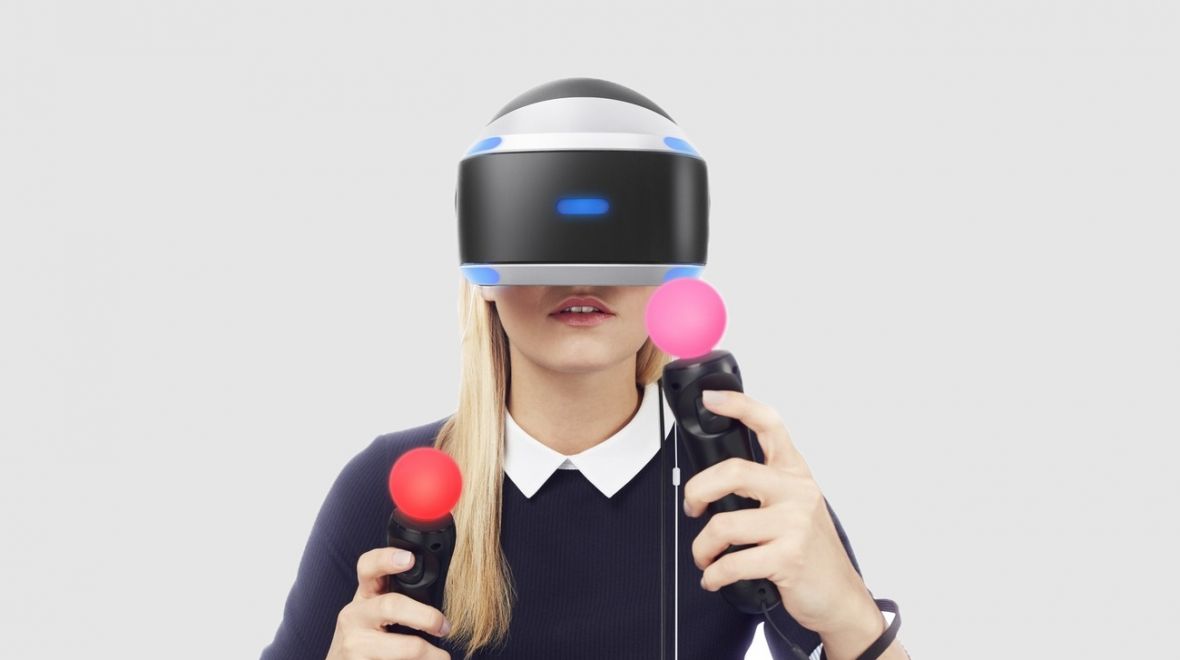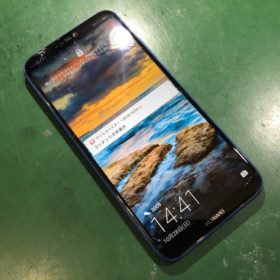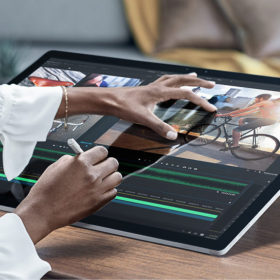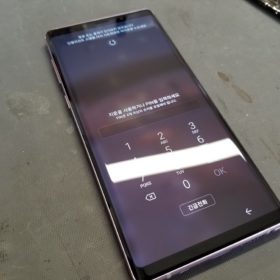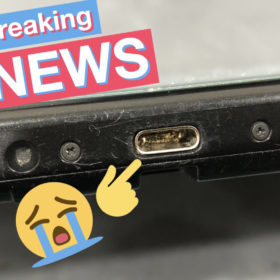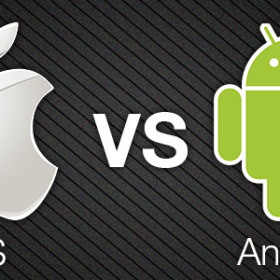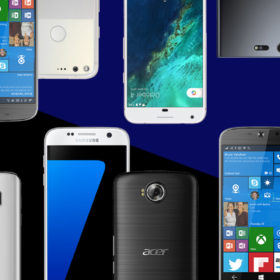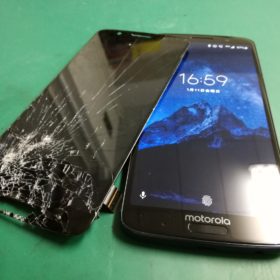People who want to get away from it all can experience imaginary worlds, or something closer to home, as virtual reality becomes more of a reality with the introduction of devices that take full advantage of developing VR technologies.
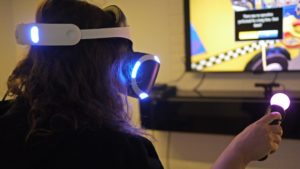
Last week, a Sony subsidiary launched its PlayStation VR (PSVR) game console, which is expected to give other VR devices a run for their money. Other VR technologies are now being used in tourism and real estate sales, but it remains to be seen whether VR devices will lead, like smartphones, to changes in people’s lifestyles.
The PlayStation VR allows users to enjoy playing realistic, inspiring video games and watch live concerts and other programs. The price per camera-equipped unit is JPY 49,980 , excluding consumption tax.
(Also see: PlayStation VR: Almost There but Not Just Yet)
People wanting to purchase the units formed long lines before large home appliance stores and other outlets in Tokyo. Information about the sales situation was exchanged on the internet.
To use PSVR, a PlayStation 4 console is needed. By connecting the goggle-type headset to the PS4, users can instantly experience virtual reality. Since more than 40 million PS4 consoles have been sold worldwide, expectations for PSVR sales are high.
“In terms of a virtual experience at home, this is the biggest innovation since the emergence of television,” Atsushi Morita, a senior official of the subsidiary, claimed confidently.
The VR market is expected to rapidly grow. US banking giant Goldman Sachs forecasts that the global VR market will grow to about JPY 6 trillion by 2025. This is because VR devices are expected to be utilized in a wide range of fields in addition to video games.
(Also see: PlayStation VR First Impressions)
For example, VR devices enable users to enjoy watching sports at home with a you-are-there feeling as well as traveling to a tourist site without physically going there. Since users can enter property for sale and pick up products without visiting real sites, VR devices are now being used in the sale of real estate and mail order goods.
VR technologies are also used to improve the efficiency of business operations. In a lecture to construction workers that was aimed at preventing accidents, VR devices were used to have trainees virtually experience working on a high-rise construction site. In medical institutions, VR devices are expected to be used in diagnosis, surgery and other processes.
However, challenges remain for the spread of VR devices in relation to TV sets and smartphones. To enjoy full virtual reality experiences, high-performance computers and special terminals are necessary, and the cost is high – more than JPY 200,000 (roughly Rs. 1,28,800) to buy the necessary equipment in some cases.
(Also see: With Sony PlayStation VR Now Out, the Search for Virtual Reality’s Killer App Begins)
Hirohiko Nakamura of Mitsubishi Research Institute said: “For disseminating VR devices, it is necessary to improve their performance and lower costs through technological innovation. It is also important to enhance other software besides video games.”
